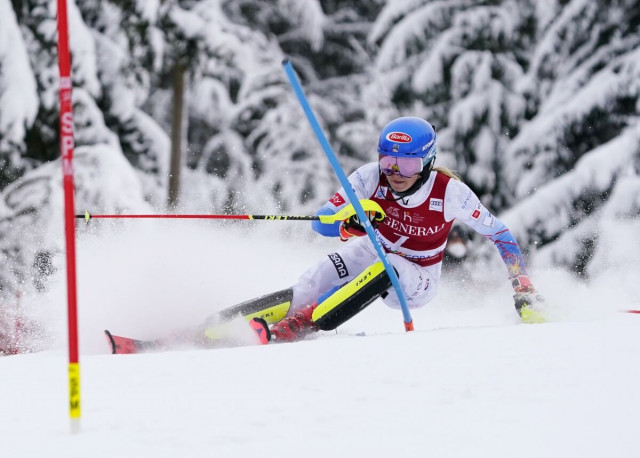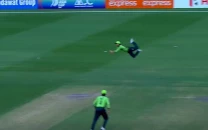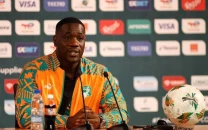Shiffrin, Odermatt favourites to defend titles
Reigning overall World Cup champions will kick off 2022-23 season in Austrian resort of Soelden

Reigning overall World Cup champions Mikaela Shiffrin and Marco Odermatt kick off the 2022-23 season as odds-on favourites, as alpine skiing again battles on against challenging environmental issues.
After three consecutive titles between 2017-19, Shiffrin rebounded to take the 'big globe' last season thanks to a revival in form after a massively disappointing Beijing Winter Olympics in February where she failed to medal, unusually skiing out of three races.
The 27-year-old American, however, already has 74 World Cup victories to her name in all disciplines and is rapidly closing on compatriot Lindsey Vonn's female record of 82 wins and the overall record of 86 held by legendary Swedish slalom king Ingemar Stenmark.
Breathing down Shiffrin's neck, at least in the technical events of slalom and giant slalom, will be Slovakia's Petra Vlhova, the overall champ in 2021 who failed to register a top-10 finish in the speed events of downhill and super-G last season.
After a year under the tutelage of new trainer Mauro Pini, Olympic slalom champion Vlhova has everything on her side in her bid to dethrone Shiffrin, with one eye also pinned on the February 6-19 world championships in the French resorts of Courchevel and Meribel.
A third female racer who will always be in contention, crashes and subsequent injuries notwithstanding, is Italy's Sofia Goggia, a queen of the downhill and super-G.
Among the male racers, Odermatt is clear favourite after a season that saw him not only win Olympic giant slalom gold but also the overall World Cup title on the back of seven race wins among 16 podium finishes.
The 25-year-old all-rounder will surely seek to fill the big ski boots left by now-retired Austrian Marcel Hirscher, winner of eight consecutive overall titles.
Title contenders will surely feature Norway's Aleksander Aamodt Kilde, Shiffrin's boyfriend and overall winner in 2020.
Kilde nabbed globes for the downhill and super-G disciplines last season on the back of seven World Cup victories in a startling comeback from ruptured knee ligaments.
Kilde's teammate Henrik Kristoffersen roared into form after the Beijing Olympics with four wins and his goal will be to maximise glory in the slalom, a discipline in which Odermatt does not compete, and be a thorn in the Swiss racer's side come the giant.
The season kicks off, as usual, on the Rettenbach glacier in the Austrian resort of Soelden on Saturday amid more concerns over global warming.
Those worries were accentuated by the recent news that Saudi Arabia would host the Asian Winter Games in 2029.
"Absurd," according to French slalomer Clement Noel. "Senseless," added teammate Alexis Pinturault, citing the desert kingdom's non-affinity to winter sports.
Global warming is noticed first hand by racers, who use glaciers to hone their skills in off-season.
After another particularly hot northern summer, Swiss glaciers have lost another six percent of their volume.
As Europe enjoys an Indian summer, organisers in Soelden have had no problem making artificial snow to stick, but it is a different matter for Zermatt/Cervinia, which is to host two downhills, at end-October for men and start-November for women.
The International Ski Federation (FIS), faced with a total lack of slow at the bottom of the piste, pushed back its traditional "snow control" in a bid to allow colder temperatures to set in to allow the artificial snow created by cannons to settle.
Global warming also rears its head in the form of the travel involved in competing this season, with two separate trips to North America, sometimes just for one race.
FIS officials argue that they don't have total control over the calendar, citing a tug of war over lucrative television rights that would go against the desires of big ski countries such as Austria and Switzerland.



















COMMENTS
Comments are moderated and generally will be posted if they are on-topic and not abusive.
For more information, please see our Comments FAQ